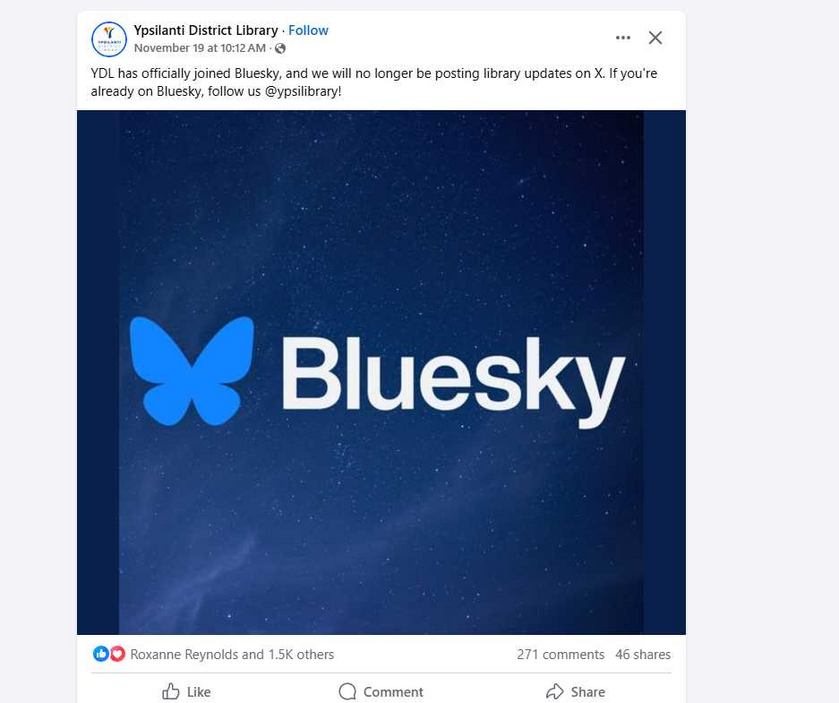YPSILANTI, Mich - The Ypsilanti, Michigan Public Library announced on Facebook they are leaving X (Twitter).
This is the reason they gave:
Bluesky has quickly emerged as a fast-growing platform, which is why we have chosen to de-prioritize X now, but in truth, we probably should have migrated from X sooner and prioritized a platform like Threads, LinkedIn, or Snapchat. If it was cost-free to continue to post to X without taking the time to separately share dozens of posts a week with a shrinking audience, we would continue to do so. If we expand to 10 platforms, we will add X back into the mix. But as we've explained, our social media management tool allows us to connect to up to 3 social media platforms at once, and right now our efforts to reach the community are most effective on Facebook, Instagram, and Bluesky. We've had more interaction with patrons on Bluesky in the last 24 hours than we have in the last 12-14 months on X, so this is the best social media strategy for us for now.
Support my independent journalism by becoming a paid supporter.
Facebook users aren’t buying the libraries explanation of the exit from X (twitter).



Others agree with the move, agreeing with the library that this move is not political.


Twitter, now rebranded as X by owner Elon Musk, continues to divide public opinion, with its evolving policies and business strategies sparking heated debate. Once a platform hailed for amplifying voices worldwide, its recent changes under new ownership have prompted both praise and criticism.
Supporters of the platform argue that its shift toward prioritizing free speech and reducing content moderation is a necessary correction to perceived censorship.
Critics on the left argue that Twitter has not done enough to curb hate speech, misinformation, and harassment, especially against marginalized communities.
What is BlueSky?
Bluesky was initially conceived as a project within Twitter in 2019, with the goal of creating a decentralized standard for social media. It became an independent organization in 2021.
Twitter co-founder and former CEO Jack Dorsey has been a prominent advocate for Bluesky and its decentralized approach.
Unlike traditional platforms, which are controlled by a single company, Bluesky allows users to host their own servers and interact across a network of servers. This decentralization aims to reduce centralized control and censorship.
As controversies around Twitter have grown, including its policy changes and rebranding as X, Bluesky has been viewed as a potential competitor or alternative.




















